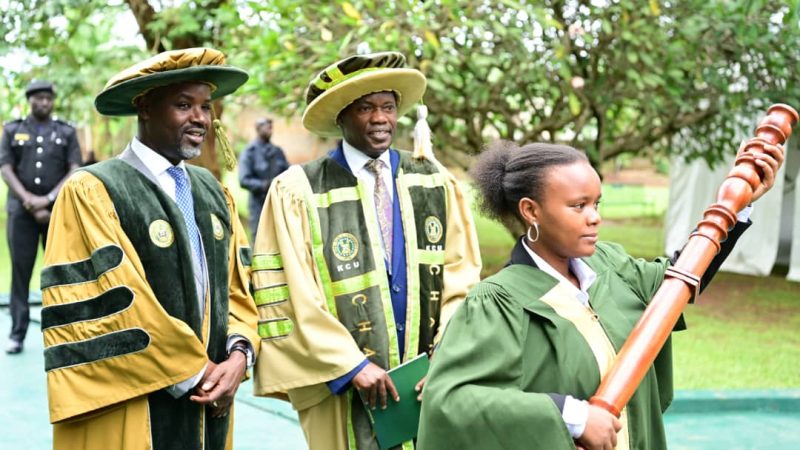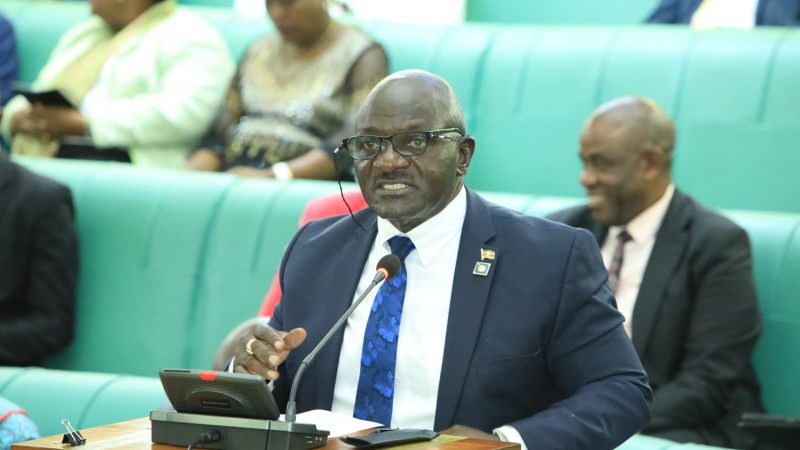Dr Olive C Kobusingye, a younger sister to Uganda’s opposition kingpin Dr Kizza Besigye, has taken on Prime minister Dr Ruhakana Rugunda for his support of the age limit.
A medical practitioner, Kobusingye has poked holes into Rugunda’s statement that there was no scientific evidence that old age affected the performance of a president.
“I see nothing that provides a scientific or rational reason that somebody who is above 75 years cannot be president,” Rugunda was quoted.
Related: Ruhakana Rugunda Joins NRM Youth To Publicly Push For Museveni Age Limit Removal
Kobusingye, a critic of the leadership of three-decade president Yoweri Museveni, is the author of a book that stings Museveni’s governance titled The Correct Line?: Uganda Under Museveni.
In a long opinion piece, Kobusingye educates Rugunda on the functioning of the brain and how age affects attention, reason and intellect:
Dear Dr Rugunda,
A story in [the media recently] quoted you as saying: “I see nothing that provides a scientific or rational reason that somebody who is above 75 years cannot be president.”
This was in reference to the presidential age limit. If this is true, your ignorance is hardly surprising. A pediatrician is unlikely to be versed with the scientific literature on brain aging. So, for your benefit, these are the facts.
As one ages, the brain changes in both form and function. The brain’s volume peaks in the early 20s and gradually declines for the rest of life. In the 40s, the cortex (part of the brain responsible for intellect, among other functions) starts to shrink.
Nerve cells shrink or die, and there is a large reduction in the extensiveness of connections among the nerve cells (dendritic loss). The normally aging brain has lower blood flow and gets less efficient at recruiting different areas into operations. While there is individual variation, the watershed age for most of the important deficits is around 70 years.
The basic cognitive functions most affected by age are attention and memory. Perception (which impacts both attention and memory) shows significant declines with age. In addition, there is impairment of executive function as a key contributor to age-related declines in cognitive or intellectual tasks.
Attention deficit
Attention refers to the ability to concentrate and focus on specific stimuli. Simple hearing attention span (immediate memory) shows only slight decline with age.
A more noticeable age effect is seen on more complex attention tasks, such as selective and divided attention. Selective attention is the ability to focus on specific information in the environment while ignoring irrelevant information, while divided attention is the ability to focus on multiple tasks simultaneously.
Processing speed refers to the speed with which intellectual activities are performed as well as the speed of motor responses. This fluid ability begins to decline in the third decade of life and continues throughout the lifespan.
Many of the cognitive changes reported in healthy older adults are the result of slowed processing speed.
This “slowing” can negatively impact performance on many domains, and is particularly problematic when having to review, internalize, and respond to new information promptly. Thus, a decline in processing speed can have implications across a variety of cognitive domains.
One of the most common age-related deficits is change in memory. Age-related memory changes may be related to slowed processing speed, reduced ability to ignore irrelevant information, and decreased use of strategies to improve learning and memory.
While retention of information that is already successfully learned is preserved in cognitively healthy older adults, there are declines in memory retrieval, which is the ability to access newly learned information. Likewise, there is reduced ability to encode new information into memory.
Many complex everyday tasks such as decision-making, problem-solving, and the planning of goal-directed behaviors require the integration and reorganization of information from a variety of sources. Older adults exhibit significant deficits in tasks that involve active manipulation, reorganization, or integration of the contents of working memory.
Decision making
Research shows that older people tend to rely more on prior knowledge about a problem domain and less on new information, whereas young people tend to sample and evaluate more current information and consider more alternatives before making their decisions.
Partly because of working memory limitations, older people tend to rely on ‘expert opinion’ to a greater degree than young adults. Although this strategy may work reasonably well when the expert is well-qualified, it may leave older people susceptible to things such as investment scams. Poor decision-making may also be a result of episodic memory decline, particularly the loss of memory for details or source.
Executive functioning allows a person to successfully engage in independent, appropriate, purposive, and self-serving behavior. This includes cognitive abilities such as the ability to self-monitor, plan, organize, reason, and problem-solve.
There is ample evidence that concept formation, abstraction, and mental flexibility decline with age, especially after age 70. Beyond 70, there are significant declines in inductive reasoning, as measured by verbal and mathematical reasoning tasks.
Reasoning with unfamiliar material also declines with age. Major exceptions to this decline include the ability to appreciate similarities, describe the meaning of proverbs, and reason about familiar material – these remain stable throughout life.
The deterioration in intellectual capacity has no direct relationship with physical fitness. You might be able to do a hundred push-ups without breaking a sweat, but this does not necessarily halt the decline in mental acuity.
If the 70-year-old person had memory and attention deficits last year, and he signed documents without due scrutiny, this year the lapses will be worse, and more documents will slip through.
These lapses could occur during a speech at the UN, hosting a foreign investor delegation, or chairing cabinet. The older adult might leverage his wider experience, create more bureaucratic procedures to accomplish simple tasks, may be plagued by indecision, and if a leader, may lead by proxy.
The other end of the age spectrum is closer to the pediatrician – the youth. The young adult’s hormonal constitution is well known and their behavior is fairly predictable.
While their mental acuity is at its peak, they need the substrate on which to apply that prowess. Sadly, that is not downloadable from Play Store. It is acquired through a slow tedious process called growing up.
At both extremes the effects follow a normal distribution, meaning that the majority of people will behave as described, but that a few will be outliers. Society does well not to peg their fortunes on the chances of an outlier.
So – to get back to your point, yes, there are very clear scientifically established reasons why a 76-year-old and a 19-year-old are not good choices for a country’s chief executive. Sorry to the outliers out there.








